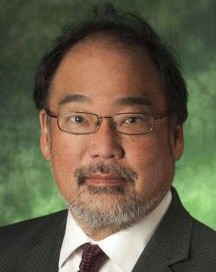 John Ishiyama is University Distinguished Research Professor and Chair of the Department of Political Science at the University of North Texas. He was President of the American Political Science Association (APSA) from 2021-22. From 2012-2016 he was Editor-in-Chief for the American Political Science Review and was the founding editor-in-chief of the APSA’s Journal of Political Science Education serving in that role from 2004-2012. He also helped establish the APSA Teaching and Learning Conference. He was Principal Investigator and Director of the U.S. National Science Foundation-Research Experience for Undergraduates (NSF-REU) site on Civil Conflict Management and Peace Science from 2010-2020.
John Ishiyama is University Distinguished Research Professor and Chair of the Department of Political Science at the University of North Texas. He was President of the American Political Science Association (APSA) from 2021-22. From 2012-2016 he was Editor-in-Chief for the American Political Science Review and was the founding editor-in-chief of the APSA’s Journal of Political Science Education serving in that role from 2004-2012. He also helped establish the APSA Teaching and Learning Conference. He was Principal Investigator and Director of the U.S. National Science Foundation-Research Experience for Undergraduates (NSF-REU) site on Civil Conflict Management and Peace Science from 2010-2020.
His research interests include democratization and political parties in post-conflict politics (with a focus on Russian, Eurasian, and African politics), ethnic politics, and the scholarship of teaching and learning. He has published extensively, producing ten (10) books and over 200 journal articles and book chapters.
In addition to his service as APSA President, he was a Vice President of the Midwest Political Science Association (MPSA), and has served on the APSA Executive Council, and the executive boards of the MPSA and Pi Sigma Alpha, the Political Science National Honorary Society. He is currently serving as the IPSA Track Co-Chair of GL13 Political Science Teaching and Learning. He is also a long-time active member of the International Studies Association. He has received numerous national, state, and university awards, including the APSA Frank J. Goodnow Award, the Lifetime Achievement Award from the APSA Political Science Education Section, the APSA Distinguished Teaching Award, the Quincy Wright Distinguished Scholar Award by the International Studies Association, and the APSA Heinz Eulau Award for best article published in an APSA journal. From the State of Texas, he received the 2017 Minnie Stevens Piper Professorship (a statewide award for professors for outstanding academic, scientific, and scholarly achievement and for dedication to the teaching profession). He has also received major grants from the National Science Foundation, the US Department of Education, the US Department of State, and the APSA.











